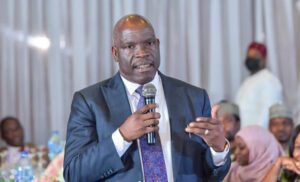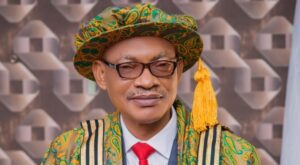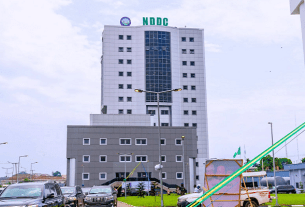Nowadays, the nights are longer and the days are shorter. Beneath the Katampe hills, the city below still yawns awake, its skyline wrapped in foggy mist, but up on the trail, laughter and footsteps blend with the hum of dawn. Dozens of hikers, including men, women, teenagers, and even children as young as five, are halfway up a climb. They call themselves “Mantrek”.
What began ten years ago as a casual Saturday stroll among friends has grown into one of Abuja’s most enduring hiking communities, celebrating a decade of resilience, fitness, and friendship.
For Ifeanyi Ukoha, the founder of Mantrek, the idea was simple: to create a space where people could enjoy nature and wellness without pressure or pretence. “I used to see foreigners hiking around Abuja and wondered why we Nigerians didn’t do the same,” he recalls. “I joined a group called The Hash but wanted something calmer, early morning, less drinking, more purpose. That’s how Mantrek started.”
From a handful of friends to a steady network of enthusiasts, the group has evolved organically. There are no registration forms or fees, just word of mouth and commitment to the climb. Every Saturday, they meet at 6:30 a.m., choose a trail, such as Katampe, Jabi, Mpape, or Ushafa, and begin. Some come for fitness, others for fellowship, but all leave with something lighter.
“We’ve seen friendships grow here. Even three marriages have come out of Mantrek,” Ukoha laughs. “When you walk long enough beside people, you stop pretending. Nature pulls honesty out of you.”
Behind the scenes, structure matters. Says Mr. Derrick Sadoh, a Consultant and Human Resources executive, and the group’s chief organiser says, “old veterans act as guides and navigators, ensuring no one is left behind. A whistle system signals rest stops, hazards, or regrouping. “The mountain teaches you humility,” Mr. Derrick says. “Up there, everyone’s equal. The banker walks beside the bricklayer; the doctor follows the driver. It’s about movement, not status.”
Mr. Derrick shares that the journey hasn’t been without its challenges. “Rising fuel costs make accessing remote trails expensive. Urban expansion has swallowed some of their favourite paths”. Sadly, recalling how a once picturesque hill has now been destroyed by urban estate developers. And safety, in an age of insecurity, remains a quiet concern. “We scout every trail before hiking,” he explains “Sometimes we hike with local security, every hike being strategically mapped out beforehand. Nature can heal, but it can also surprise you.”
Yet for every obstacle, there’s a story of endurance.
To mark its tenth anniversary, Mantrek isn’t just looking back; it’s looking ahead.
Plans are underway to offer training, formalise safety protocols, and collaborate with tourism agencies to promote hiking as a leisure sport in Nigeria. “We want people to see hiking not as a luxury, but as a lifestyle,” Ukoha says. “It keeps you fit, clears your head, and reminds you that nature belongs to all of us.”
For a city constantly racing against time, Mantrek’s decade-long rhythm offers something rare. Mantrekers will tell you, it’s not just about reaching the top, it’s about who you become along the way.














